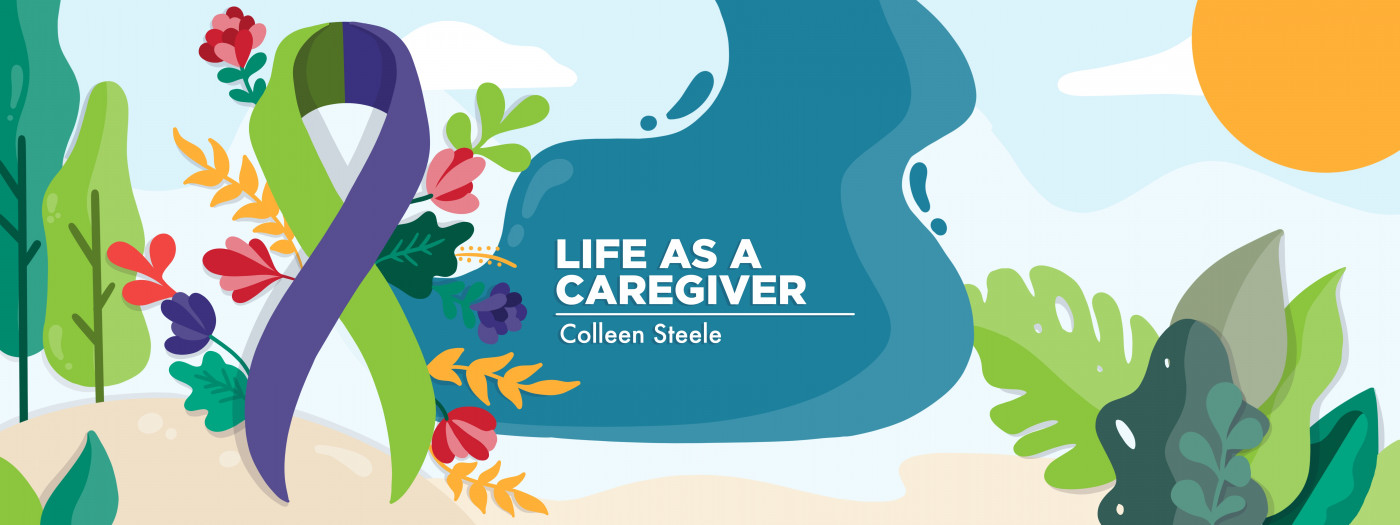Hospital Corners Aren’t so Neat for Struggling Caregivers

For all of you Ms. and Mr. Hospital Corners out there, I see you!
No, I don’t see or care how you made your bed today, but I do care about how you’re holding up as caregivers.
Due to rapid decline from pulmonary hypertension (PH), my son Cullen received a heart and double-lung transplant almost eight years ago. When I take him to post-transplant appointments at the hospital, I look for you.
I usually find you somewhere in a hospital corner trying to smooth out your emotional wrinkles. I see you struggling to tuck away bad news or a bad day as you consider comforting words for your loved one to rest their head upon.
I know you’re trying to pull yourself together, but be careful — bind yourself up too tight, and instead of worries bouncing off you, they might snap you like a twig!
How do you allow yourself to feel your emotions but remain strong at the same time? It isn’t only the patient who needs to get through bad days; you do, too! So what’s a caregiver to do?
Start by looking up
Like I said, I see you, and so do many other caregivers around the hospital. We see you in the corner. We’re in the elevator with you. We sit across from you in the cafeteria and bump shoulders in the gift store. Please look up, say hi, and make small talk. When we see each other again, we will talk more, and before you know it, you will have made a friend.
It doesn’t matter that our reasons for being there are different. What we offer each other is a listening ear and understanding.
My son was a child when he was diagnosed with PH. During a long and difficult hospital stay, I went down to the cafeteria and discovered it was closed. I hadn’t eaten yet, so I walked to the adult side of the hospital to have my dinner there.
As I sat down to eat, feeling tired, depressed, and worried, I could sense someone looking at me. I thought the last thing I wanted was to talk to a stranger. I didn’t look up until I heard a woman ask, “May I sit with you?”
Sometimes we really do need alone time, and it would’ve been perfectly acceptable if I politely declined, but once I looked up, I found myself genuinely saying yes.
The woman told me she was watching me, and it looked like I was having a really bad day. She asked if I wanted to talk about it, so I told her about my son, and she told me about her husband who was undergoing heart surgery. We listened to each other, shared a few comforting thoughts, offered to pray for each other, and said goodbye. I remember feeling so much better after this heart-to-heart with another caregiver.
I never saw her again, but over the years, I’ve met people in the hospital whom I’m friends with to this day. If you’re feeling alone, strike up a conversation with someone nearby. Sometimes small talk ends up helping you in a big way.
Go outside
I’ve never done it myself, but I’ve heard people say that drying sheets in the sun is best because it saves energy and leaves them looking and smelling fresh. I’ve also heard that getting outside can do the same for people who have been cooped up for long periods in a hospital.
Again, this isn’t something I took advantage of, but looking back, I wish I did. I would see other caregivers sitting outside on benches or taking walks, but guilt always kept me from stepping outside.
If Cullen couldn’t go out and feel the sun, I felt like I shouldn’t be able to, either. But I think I should have thought of it as my medicine. Getting some fresh air and clearing my mind could have helped me to stay well.
There’s nothing wrong with that! Take a moment to go outside, breathe in some fresh air, and stretch your legs.
Sleep when they sleep
Veteran parents often advise new parents to sleep when the baby sleeps. I think that is excellent advice for caregivers, too.
Leave the monitor-watching to the nurses. Purchase some earplugs and an eye mask, leave a note on the board to be woken if anything changes, and get some sleep. It’s difficult to advocate effectively when you haven’t slept in days.
The hospital corners used to be my old hangout, and my heart goes out to those who have since made it their own.
Note: Pulmonary Hypertension News is strictly a news and information website about the disease. It does not provide medical advice, diagnosis, or treatment. This content is not intended to be a substitute for professional medical advice, diagnosis, or treatment. Always seek the advice of your physician or other qualified health provider with any questions you may have regarding a medical condition. Never disregard professional medical advice or delay in seeking it because of something you have read on this website. The opinions expressed in this column are not those of Pulmonary Hypertension News or its parent company, BioNews, and are intended to spark discussion about issues pertaining to pulmonary hypertension.









Comments